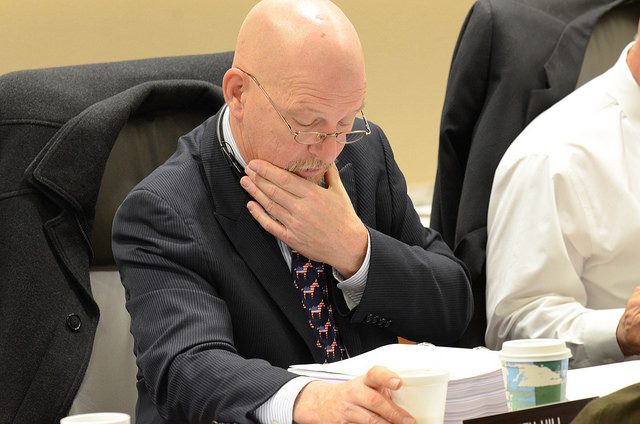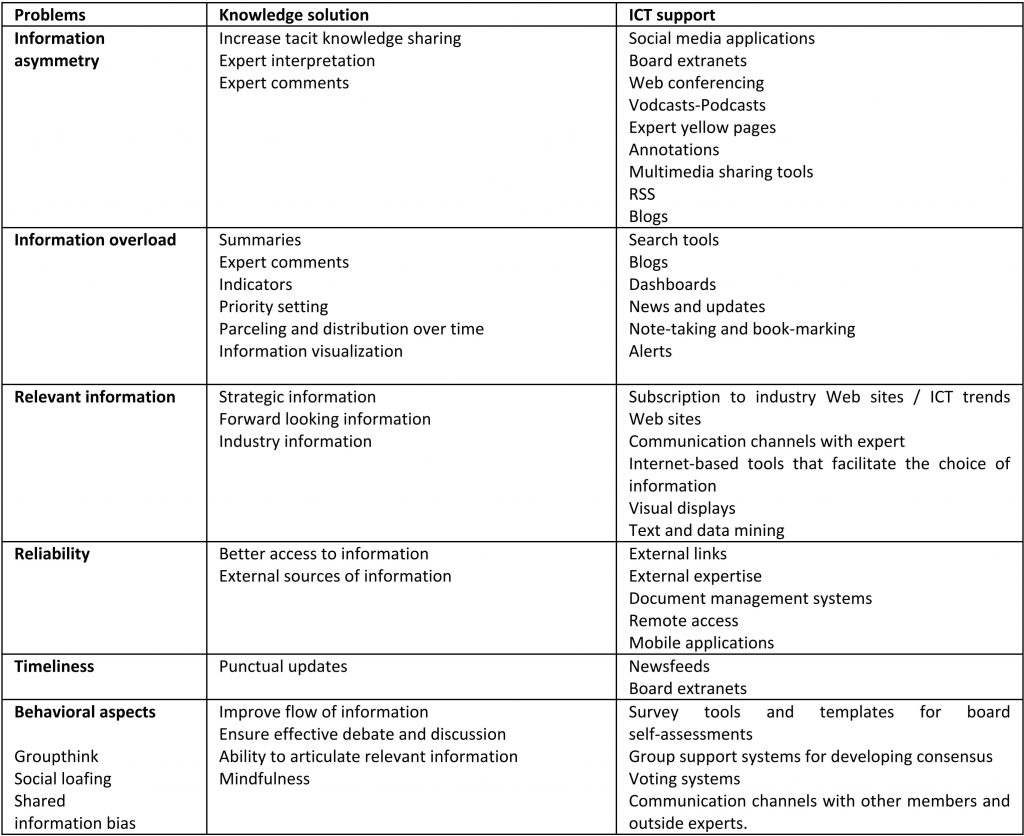
How boards of directors can potentially improve decision-making through knowledge strategies supported by ICT
Corporate boards face increasing scrutiny, but studies show that board directors still lack the information and knowledge they need to be able to fulfill their evolving responsibilities.
A new study1 helps to address this situation by looking at how boards of directors can potentially improve decision-making through knowledge strategies supported by information and communication technologies (ICT).
The researchers first reviewed the literature on corporate board information and decision-making limitations, and then identified potential solutions by relating these limitations to the literature on ICT, following a design science research methodology.
The literature review identified a series of knowledge-related problems that could impair the quality of board decisions, including information asymmetry, information overload, and groupthink. Information asymmetry is where there is a difference between the information available to management and what is presented to the board, with independent directors being heavily dependent on managers for their information and knowledge.
Potential solutions to these problems are shown in Figure 1. The researchers advise that these solutions represent a first step in developing a comprehensive knowledge framework for boards, and future research can build on these findings.

Article source: Improving Board Knowledge with Information and Communication Technologies is licensed under CC BY-ND 4.0.
Header image source: November Executive Board Meeting by AFGE is licenced by CC BY 2.0.
Reference:
- Roy M.C., Roy M.J., and Bouchard, L. (2017). Improving Board Knowledge with Information and Communication Technologies. The Electronic Journal of Knowledge Management, 15(4): 215-224. Available online at www.ejkm.com ↩
Also published on Medium.

